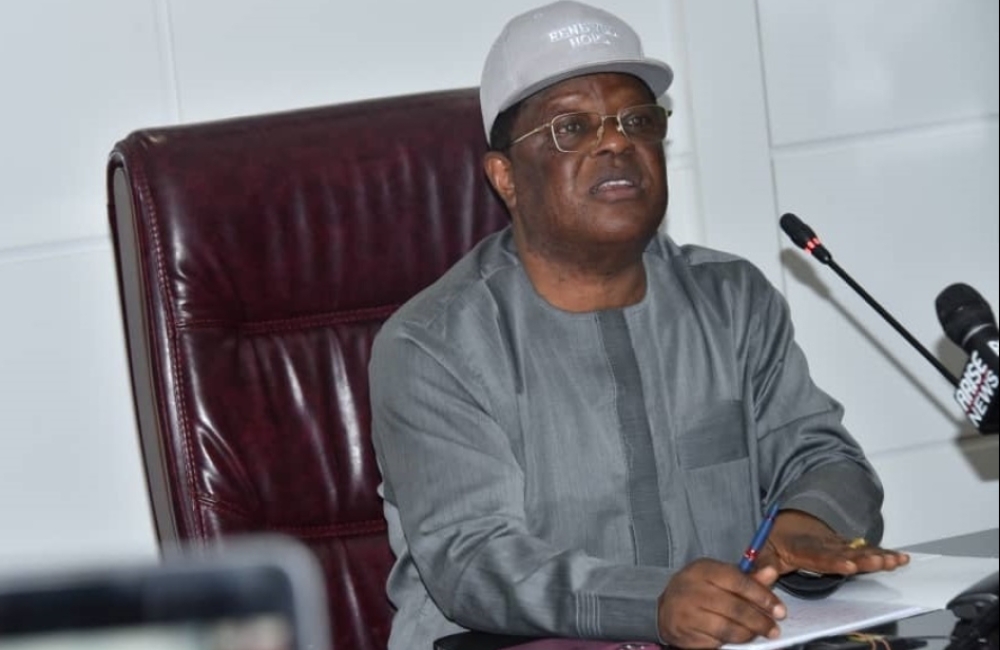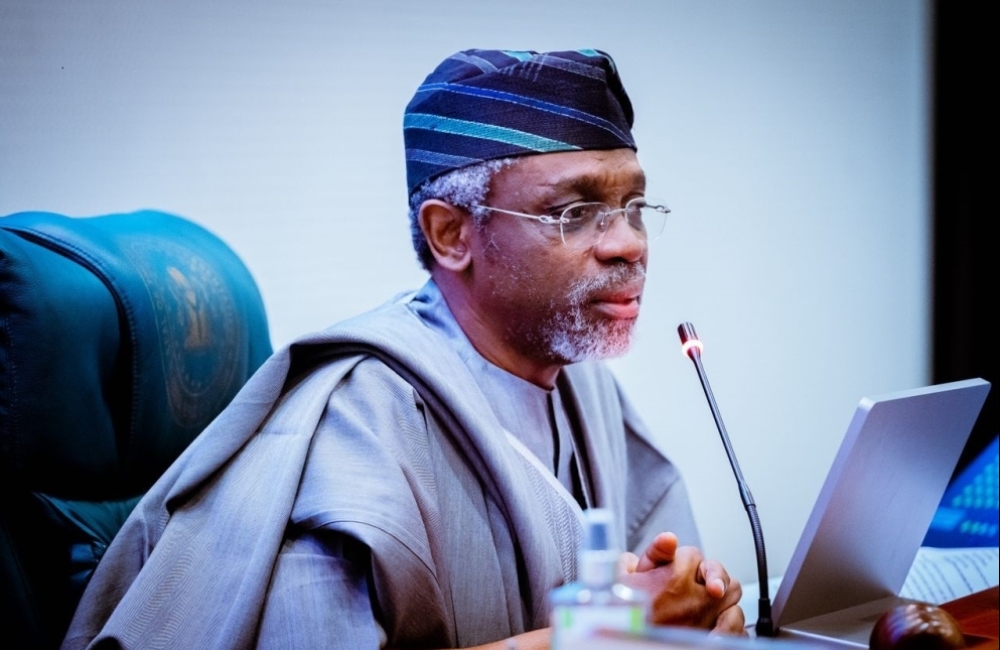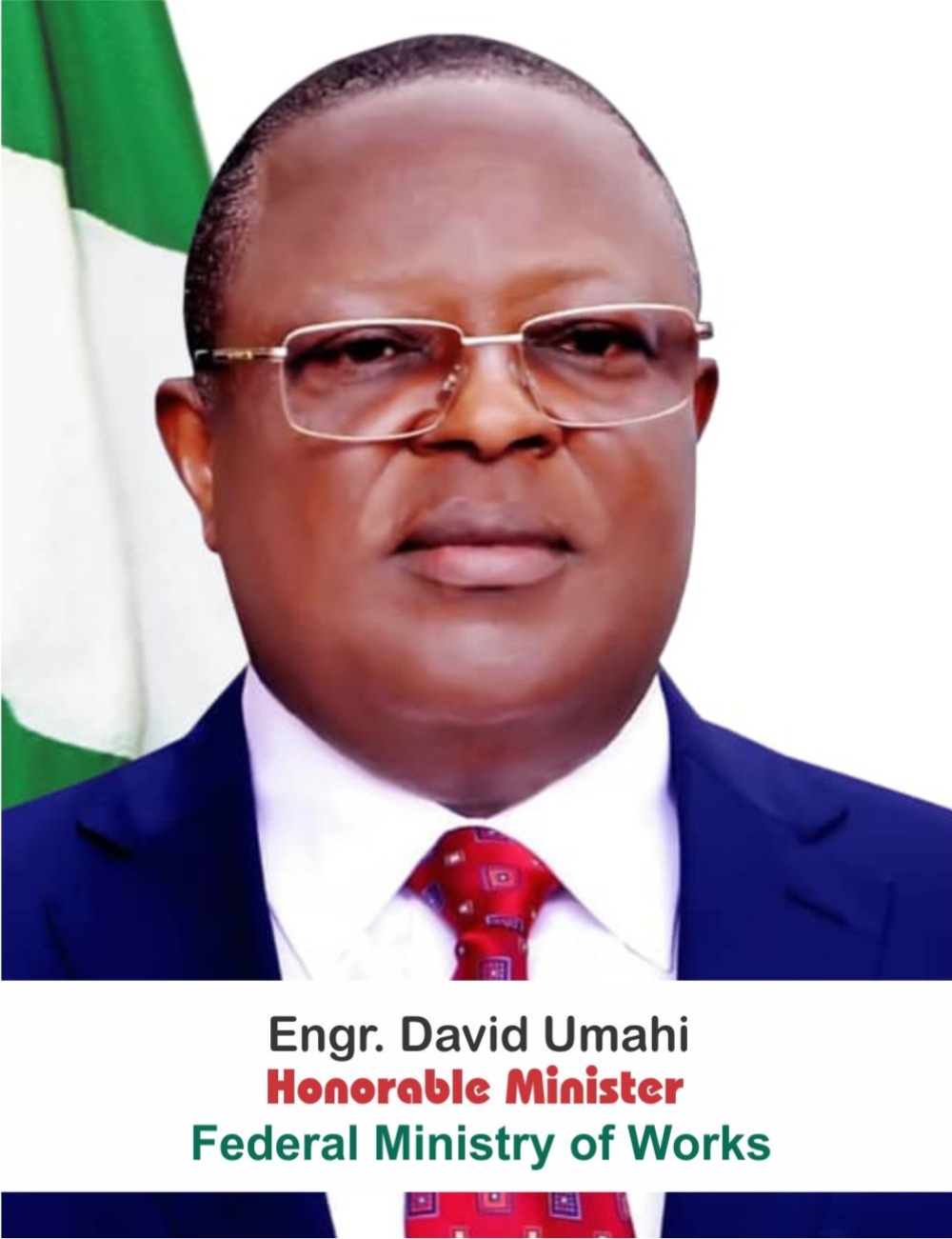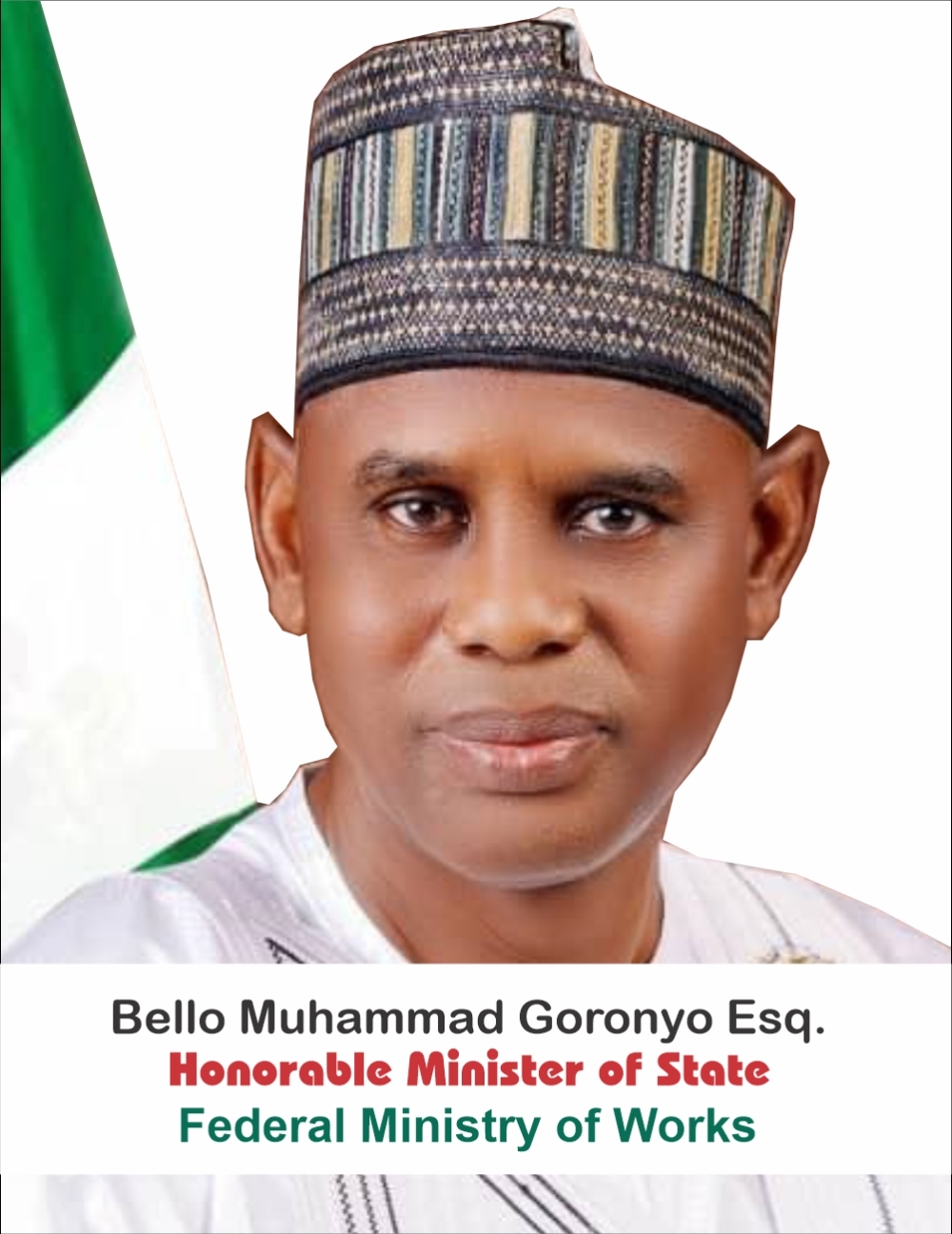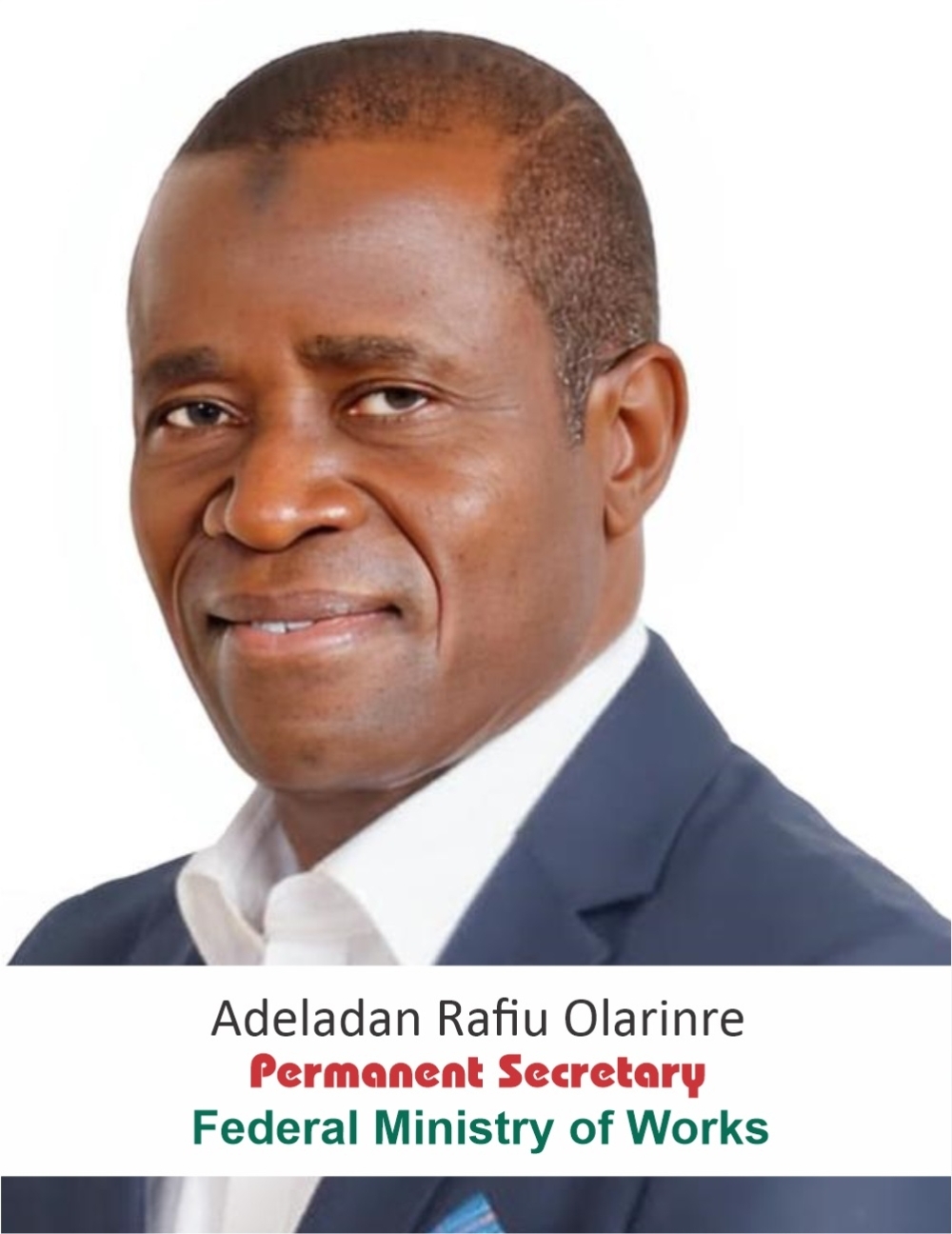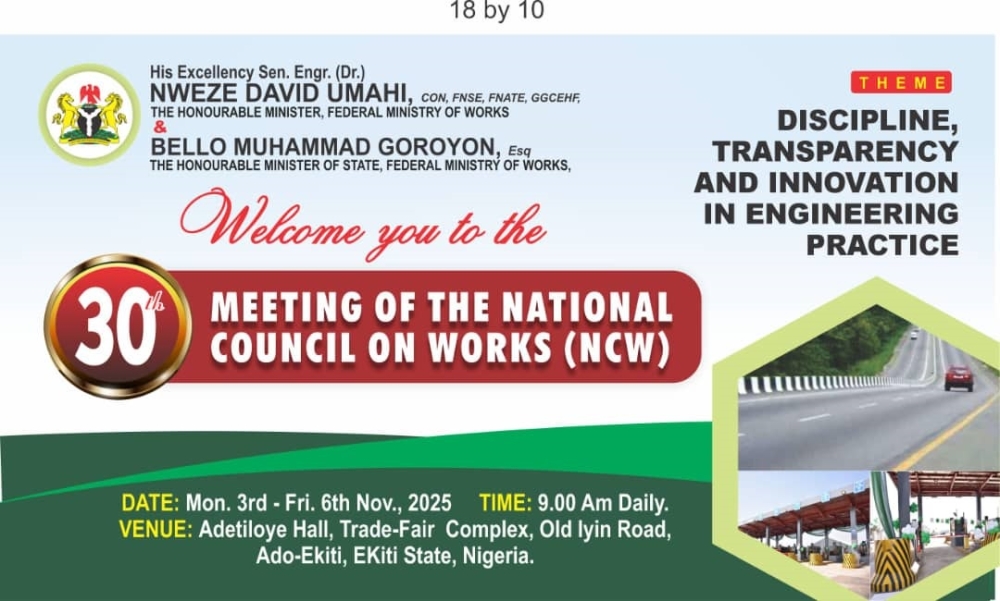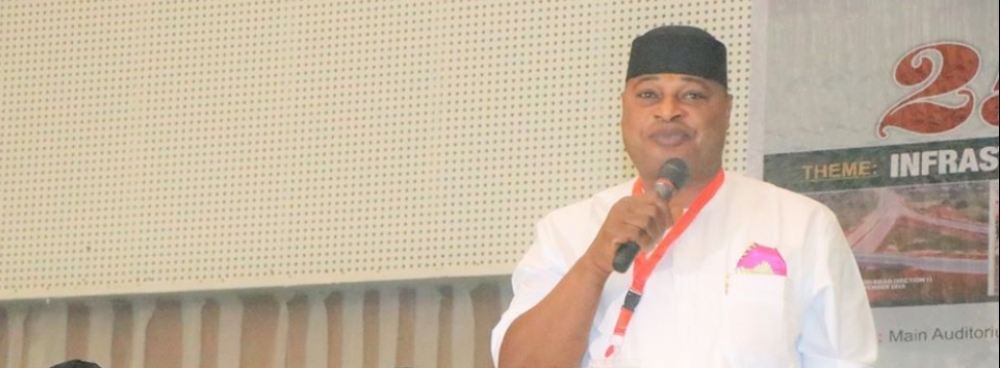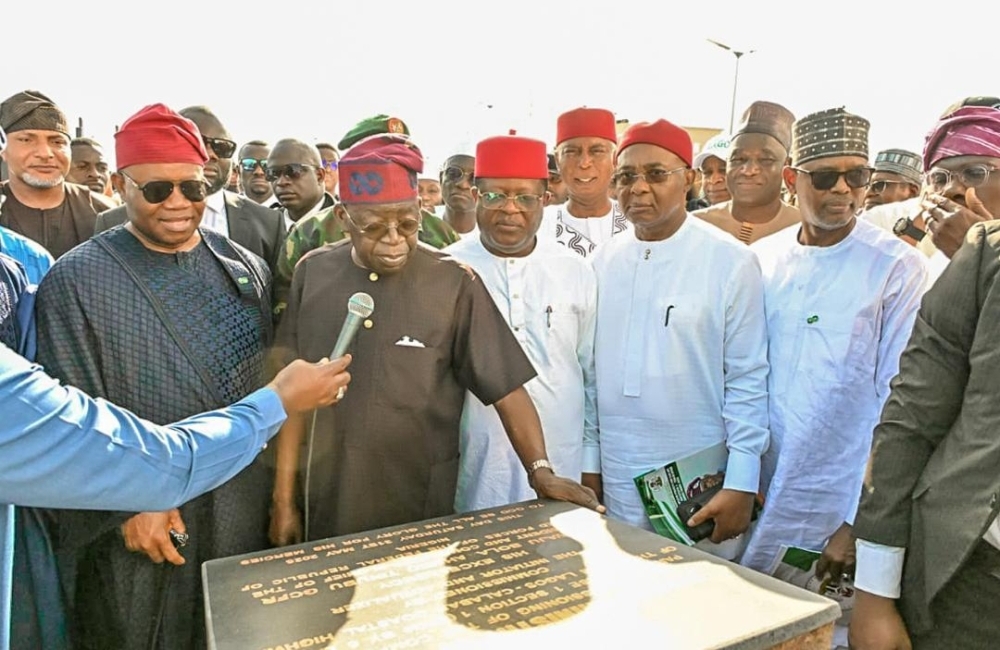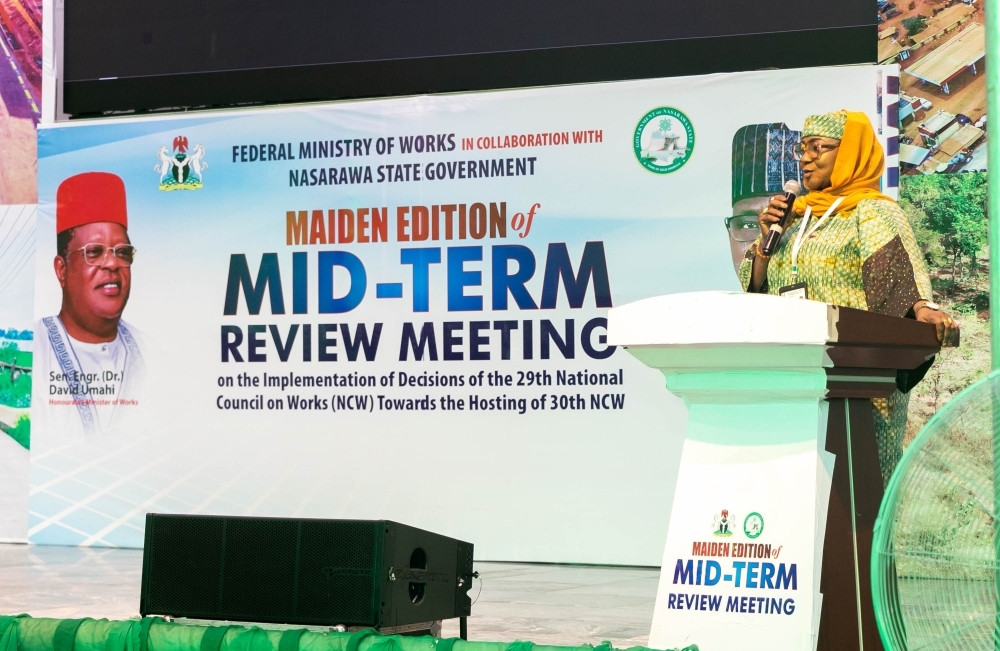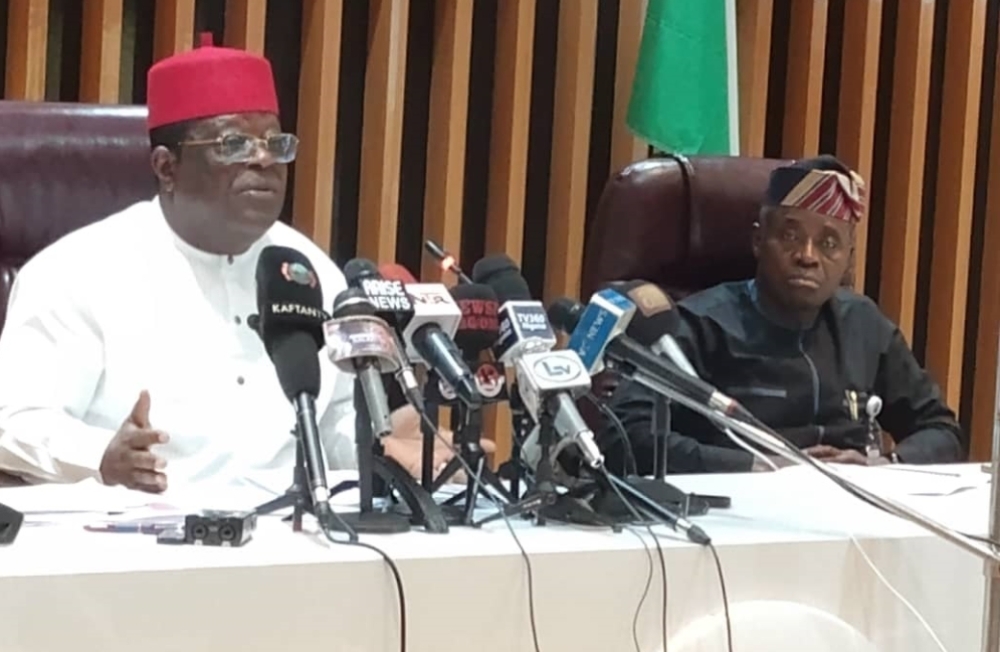
WORKS MINISTRY DID NOT AWARD ABUJA–KADUNA ROAD CONTRACT TO MIKANO – UMAHI CLARIFIES
The Honourable Minister of Works, Engr. Sen. David Nweze Umahi, CON, FNSE, FNATE, has clarified that the Federal Ministry of Works did not award the Abuja–Kaduna Road contract to Mikano International Limited. The Minister stated that the contract was awarded to Infiouest International Limited, in line with due procurement processes and transparency standards.
The Minister made this clarification while briefing journalist on 12 Febuary, 2026 in the Ministry Confrence Room in Mabushi Abuja, also drawing public attention to the increasing rate of vandalisation of critical road infrastructure across the country. He noted that the Ministry has a responsibility to provide accurate information to the public and to protect national infrastructure from destruction.
Engr. Umahi expressed serious concern over widespread vandalism affecting roads, bridges, and related infrastructure nationwide. He cited recent cases along the Lagos Coastal Road corridor, where protective structures and road components have been deliberately damaged.
According to the Minister, flooding recorded in some sections of the coastal highway was largely caused by blockage of underground drainage channels with refuse, emphasizing the need for public cooperation in maintaining infrastructure.
He commended the Lagos State Government, security agencies, and the Nigeria Police for deploying personnel to safeguard critical infrastructure and combat vandalism.
Parking of heavy trucks on bridges creates structural stress, as bridges are not designed for static heavy loads. He disclosed that some offenders have already been arrested and are being prosecuted.
The Minister highlighted the Federal Government’s adoption of reinforced concrete road technology, which is expected to last between 50 and 100 years, compared to traditional asphalt roads. He commended President Bola Ahmed Tinubu GCFR, for supporting long-term infrastructure development and for approving several strategic road projects nationwide.
The Minister announced the
Extension of the Bodo–Bonny Road by 8.7km to link the East–West Road, using concrete pavement technology.
He added that Progress on major legacy road corridors including routes connecting Akwanga – Jos – Bauchi – Gombe – Maiduguri.
Expansion of CCTV surveillance on major bridges and highways to curb vandalism and enhance monitoring.
The Minister emphasized that federal road projects are distributed based on national development priorities, not regional considerations. He called on Nigerians to support national unity and protect public assets.
The Federal Government is considering stronger policies and collaboration with private sector partners and state governments to improve road maintenance and enforce compliance against illegal road obstructions and structures.
Addressing the status of NNPCL-funded road projects initiated under Executive Order 007 (April–May 2023), the Minister clarified that the Nigerian National Petroleum Company Limited (NNPCL) will no longer directly pay contractors for these projects. He announced that the Federal Ministry of Works has officially taken over both project supervision and payment responsibilities, in line with new federal directives.
The Honorable Minister disclosed that ₦127 billion has been released by Mr. President for the continuation of these projects, underscoring the administration’s commitment to completing inherited infrastructure initiatives. He noted that an estimated ₦7 trillion will be required to complete all NNPCL-funded projects, describing them as critical to national connectivity and economic development.
Sen. Umahi further revealed that the Federal Government inherited 6,604 ongoing federal road and bridge projects nationwide, with a projected ₦16.9 trillion required for their completion. He reiterated that President Bola Ahmed Tinubu has directed that all inherited projects must be completed, stressing that infrastructure development remains a top priority of the administration.
The Honourable Minister reaffirmed the Ministry’s commitment to transparency, efficiency, and accountability in the execution of these projects, assuring Nigerians that the government is determined to deliver quality infrastructure that meets international standards.
The Permanent Secretary, Federal Ministry of Works, Mr. Rafiu Adeladan, In his closing remarks, thanked members of the press for their continued partnership and commitment to national development.
He reiterated the Ministry’s commitment to transparency and urged the public and media to verify facts and provide constructive feedback to support improved service delivery.
Close












